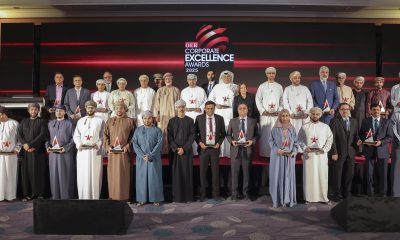UAE
Dubai Silicon Oasis Authority implements AI-enabled building management system

(WAM) — The Dubai Silicon Oasis Authority, the regulatory body for the Dubai Silicon Oasis, DSO, today announced it has successfully upgraded its existing Integrated Building Management System, IBMS, which looks after 40 buildings within the DSO to an Artificial Intelligence-enabled IBMS.
The system connects almost 60,000 points of control from all the buildings and plants, including the Dubai Silicon Oasis Authority, DSOA, headquarters, six office towers, the Cedre Shopping Centre, the operations and facilities centre, light industrial units, two residential complexes, Al Waha Mosque, and the Dubai Digital Park project, through a Local Area Network, LAN, and using Tridium’s Niagara Framework to integrate all the digital data streams available across the network. Data is aggregated centrally and analysed through an Artificial Intelligence-enabled approach, with algorithms designed to recognise and react to patterns. Every data point in the building portfolio is consolidated into a single system to optimise information management and decision-making.
Leveraging state-of-the-art technology, the IBMS has helped DSOA save approximately AED1 million per month. This number takes into consideration both a reduction in energy usage and a reduction in manpower.
Speaking on its significance, Khalil Odeh Shalan, Senior Vice President of Operations and Facilities at DSOA, said, “At DSOA, we are committed to articulating the vision of His Highness Sheikh Mohammed bin Rashid Al Maktoum, Vice President, Prime Minister and Ruler of Dubai, to make Dubai the smartest city in the world. The new upgrade is a testament to our commitment to implementing sustainable projects, in line with the objectives outlined in the Dubai Integrated Energy Strategy 2030 and the Dubai Clean Energy Strategy 2050.”
There has been a significant reduction in energy-saving of 36 percent per year and the number of operators required to manage the 40 buildings is down from 110 to five. Furthermore, the software is based on a framework that integrates a range of devices, regardless of manufacturer or communication protocol, hence allowing DSOA greater flexibility.
Besides, from the centralised control room, the DSOA facilities management team can monitor electricity usage in real-time, providing greater ability to make appropriate adjustments and send alerts during high-consumption instances. Lastly, the IBMS grants the ability to capture and store more historical data to feed analytics tools, which help DSOA’s facilities management team to drive toward continual energy reduction and performance improvements.
-

 Banking & Finance2 weeks ago
Banking & Finance2 weeks agoOman Oil Marketing Company Concludes Its Annual Health, Safety, Environment, and Quality Week, Reaffirming People and Safety as a Top Priority
-

 Economy2 months ago
Economy2 months agoMaal Card: What Oman’s New National Payment Card Means for Everyday Users
-

 Events2 months ago
Events2 months agoOER Corporate Excellence Awards 2025 Honours Entities and Innovations in Oman
-

 News2 months ago
News2 months agoSheikh Suhail Bahwan, Chairman of Suhail Bahwan Group, Passes Away
-

 News1 month ago
News1 month agoOIG Appoints New CEO to Lead Its Next Chapter of Excellence
-

 Economy2 months ago
Economy2 months agoOman Unveils Official Omani Rial Symbol in Landmark Move to Boost Global Currency Presence
-

 News1 month ago
News1 month agoReport: How India & The Middle East Are Exploiting Immense Economic Synergies
-

 Uncategorized1 month ago
Uncategorized1 month agoOman’s ISWK Cambridge Learners Achieve ‘Top in the World’ and National Honours in June 2025 Cambridge Series


























